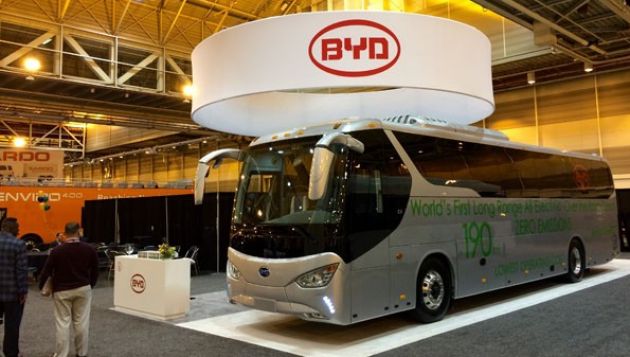BYD unveils battery electric coach

The BYD coach demonstrates how quickly electric motoring is developing
BYD Motors has officially unveiled the world's first long range, 100% battery electric coach. This first electric coach, named the BYD C9, is a two-axle, 4 foot coach with the seating capacity to carry 47 people at motorway speed for over 190 miles.
Macy Neshati, BYD Coach & Bus Vice President of Sales, said: "The transportation industry is still just warming up to the idea of battery electric buses. It was exciting to walk around last year's APTA Expo in Houston and see so many reputable names displaying an electrified bus. However, I don't think anybody thought they would see a viable electric coach solution for a few more years."
The BYD C9 is the first of three 100% battery electric coaches the company will launch globally this year. The other two, a 45 foot three-axle coach named the C10 and a 23 foot coach with executive and transport configurations named the C6 will be arriving by the end of 2015, and BYD sales managers at the 2015 UMA Expo were adamant about the fact they are taking orders for all three of the coaches starting now.
Neshati said: "Last year, BYD pulled away from the competition in the transit space when they launched a 30 foot low floor bus and a 60 foot articulated bus in addition to their 40 foot bus making them the only electric bus builder with multiple offerings. This year the launch of three coaches puts BYD on a level with no other bus or coach OEM."
